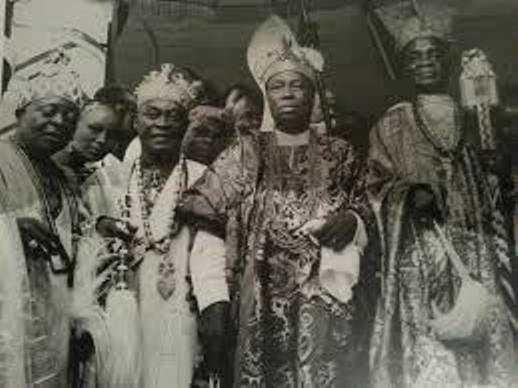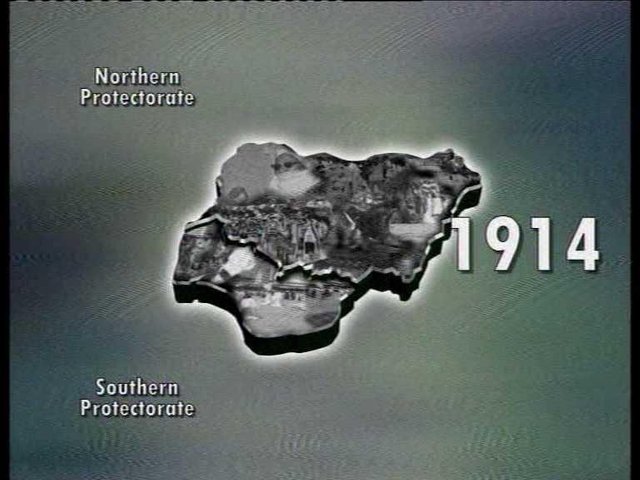THE DYNAMICS OF THE EVOLUTION OF NIGERIA AS A POLITICAL UNIT
The British and the Creation of Nigeria

You should know that the British who have often been credited with the creation of Nigeria were not the first Europeans to land in Nigeria. The Portuguese were the first Europeans to arrive Nigeria through Bini Kingdom. According to Hodgkin: “the second half of the century (fifteenth) saw the arrival of the first Europeans in Benin, the Portuguese Ruy de Sequeira in 1472 in Ewuare’s reign and Alfonzo de Aviero in 1484 in Ozolua’s reign”.
The Trans-Atlantic Slave Trade
The Trans-Atlantic slave trade was the unfortunate channel that first put the British in contact with Nigeria. The trade got to maturity in the 16th century. For close to three centuries, coastal Nigeria’s relations with the British were dominated by the trans-Atlantic slave trade. But in the early decade of the 19th century, the British decided to abolish the trans-Atlantic slave trade. They did so through the operations of the British West African Naval Squadron. You should know that it is tautological to say that the trade was very damaging to Africa in general and Nigeria in particular.
The Period of Legitimate Commerce

After three centuries of shameful slave trade came the so-called period of legitimate commerce. Of course, this was another golden opportunity for the Europeans to get more directly involved in the affairs of the African States. Europeans first introduced the “Gun-boat” politics. To them, this was important because some “erring” African states were threatened with attack and in some cases, were actually attacked. It was under the umbrella of such happenings that the British first formally annexed Nigerian territory. In 1861, they took Lagos as a colony. But, the bulk of Nigerian territory was occupied in the late 19th century. This happened through dubious treaties that were signed with some Nigerian potentates, and through military conquest of states and deportation of their rulers. Despite the resistance of some brave and courageous Nigerians such as Jaja of Opobo, Nana of Itsekiri, Ovonramwen of Benin and Attahiru of Sokoto, they could not stop the British usurpation of their independence and authority.
The Amalgamation Processes
Before the year 1900, all the different parts of Nigeria conquered by the British were still under their original administration. But by 1900, the whole Nigeria was under the responsibility of the British Colonial Office.
May 1906 Amalgamation
The May 1906 amalgamation is known as the first ever amalgamation of the British in Nigeria. British government amalgamated Lagos colony and protectorate with the protectorate of Southern Nigeria to form the new colony and protectorate of Southern Nigeria. You should know that since the whole Nigeria was under the responsibility of the British government they did not bother to seek the views of Nigerians in the two territories as to whether or not they supported the amalgamation. Besides, Tamuno (1980) observes that the primary aim of the 1906 amalgamation was purely economic, that is, “to use the better financial position of the protectorate of Southern Nigerian to cover the costs of administration and development in the financially weak colony and protectorate of Lagos, then saddled with the white elephant of a railway in need of extension since 1901”.
January 1914 Almagamation

The second amalgamation was that of 1914. In January 1914, the British government amalgamated Northern and Southern Nigeria. The principal reason for this is the same as that of May 1906. The Northern protectorate was not as economically buoyant as the colony and protectorate of Southern Nigeria. That was why, for the British imperial offices, since the Southern trade was booming, amalgamation would allow the surpluses acquired in the south to be used in the North, and this was expected to reduce British Treasury responsibility. Sir Frederick Lugard (later became Lord) is best known as the father of the “January 1914” amalgamation.
Some Consequences of the Amalgamation
It can be argued that even if the initial intention of the amalgamation process was to make of Nigeria a political unit, it did practically fail.
Nigerian Peoples and the Colonial Predicament
You should always remember that colonial rule was forcibly imposed on the people of Nigeria. As stated earlier, colonial intention has never been for the benefit of Nigerian people. It was exploitative and this engendered protests from prominent Nigerians. The pursuit of economic goals was their catalyst. The British were busy looking for cheap raw materials and creating markets for the sale of their finished products. In doing that, their objectives became clear: they pursued policies which in their entire ramification were geared towards the economic, political and social benefits of the British overlords.
The Nigerian Nationalism
It is obvious that the British colonial rule alienated Nigerians at different levels. Nigerians became foreigners in their own country! For instance, it became very difficult, if not impossible, for them to effectively participate in both the economic and governmental processes of their own country. The immediate result to such unfortunate situation was the birth of Nigerian nationalism. Like in other parts of Africa, some brave Nigerians stood up and decided to champion the cause for reforms in the system. The Nigerian nationalism was welcome both in the country and abroad. Three major trends characterized the strength of nationalistic spirit:
a. The peoples protest against the colonial system in their desire to alter the existing colonial system so that they could benefit from it,
b. The activities of black diasporas in the New World- the Americas such as Marcus J. Garvey and Wilmot Blyden who were exponents of the dignity of the African person, and
c. The presence of an articulate class of Nigerian elites who through their acquisition of western education were in the vanguard of those agitating for change in the status quo.
“The West African Pilot” and Garvey’s “the Negro World”
These are the most prominent newspapers that contributed seriously to the emergence of Nigerian nationalism. Besides, some other factors also contributed to the Nigerian nationalism: the development of political parties, and the election of the labour party in Britain with its anti-colonialism agenda. Nigeria became independent on October 1st 1960.
The Nigerian Youth Movement (NYM)
This movement is best known as the “first true nationalist organization” that emerged in Nigeria in 1936. It was headed by Samuel Akinsanya, H.O Davies, Ernest Ikoli and Dr. J.C Vaughan. Dr. Nnamdi Azikiwe and Chief Obafemi Awolowo later joined the movement in 1937.
The National Council of Nigeria and the Cameroon’s
This movement was created on 26th August 1944. It was headed by Herbert Macaulay as president and Dr. Nnamdi Azikiwe as its secretary. In 1945, the movement made one of its aims very clear: “to achieve
internal self-government for Nigeria whereby the people of Nigeria and the Cameroons under British mandate shall exercise executive, legislative and judicial power”.
The Igbo domination within the party brought in a feeling of resentment. The true nationalist spirit started giving way to “tribal interest”. On this note, the Action Group (AG) was founded in 1948 by Obafemi Awolowo to defend the interest of the Yoruba. A year later (1949) the Northern peoples Congress (NPC) was formed by Mallam Aminu Kano and Mallam Abubakar Tafawa Balewa to defend the interests of the Northerners.
There is no doubt that the establishment of these tribal oriented political organizations turned out to be strong centrifugal forces against Nigerian unity. According to Olusanya (1980:568) “with the formation of the AG and the NPC, ethnic nationalism and regional divisions triumphed over the forces of unity in Nigerian politics.”
Nigerian Independence and Constitutions
The final declaration of the Nigerian independence on October 1st 1960 was also the result of the major constitutions namely:
• The Richards Constitution of 1946
• The McPherson constitution of 1951, and
• The Lyttleton Constitution of 1954
The 1954 Constitution
The McPherson constitution was the most comprehensive and did not live long. The need for its revision became necessary. The revision led to the promulgation of the Lyttleton Constitution of 1954 that remains the cornerstone of the Nigerian constitution till date. The 1954 constitution established a federal system of government for Nigeria. It is also believed that the 1954 constitution marked the end of nationalist struggle for independence. You should also remember that even when Nigeria attained her independence, there were still deep fissures within the structure. Ethnicism and tribalism were the most prominent, along with the feeling of marginalization by minority groups in different areas.
Is Nigeria a Vital Political Unit?
Bearing the socio-historical evolution of Nigeria in mind, the question whether Nigeria is a real political unit cannot receive a complete “no” or “yes” answer. The answer will depend on the person’s angle of analysis. For some scholars, the Federation of Nigeria is a mistake. They argue that Nigeria is a conglomerate of various ethnic groups. And, during the pre-colonial period those ethnic groups never interrelated. So it was futile to put such people together. Therefore, the unity of Nigeria is just a mere concept or a slogan.
Although there are some elements of truth in this thesis, some scholars still argue the opposite. According to Ikime (1985) and Ajayi and Alagoa (1980) Nigeria can be seen as a real political unit. They argue that there were fruitful inter-group relations between the people of Nigeria before colonial rule. They also argue that the common experience of colonial rule buy the peoples of Nigeria provided good grounds for building a nation. This was also the case with the British thirteen America Colonies that later formed the United States of America with their declaration of independence in 1776.